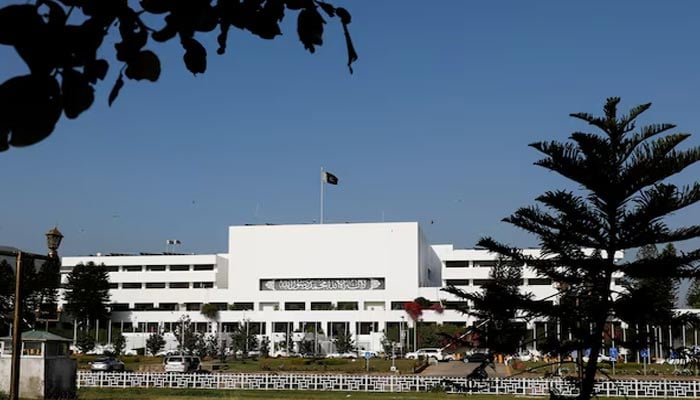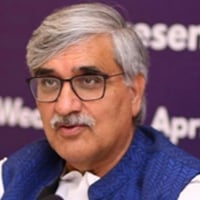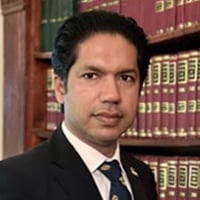Experts weigh in on bill barring lawmakers from changing affiliation
NA approves bill proposing amendments to Elections Act 2017 which would bar lawmakers from changing party affiliation
August 06, 2024

The National Assembly on Tuesday greenlighted a bill proposing amendments to the Elections Act 2017 which would bar the lawmakers from changing their party affiliation.
The bill will prevent the politicians, who contested the February 8 elections as independent candidates, from changing their affidavit at a later stage to declare affiliation with any political party.
The development came after the Supreme Court's July 12 ruling which had declared the Imran Khan-founded Pakistan Tehreek-e-Insaf (PTI) eligible for reserved seats.
In its amendment to Section 66 of the Elections Act, the bill says that if a candidate does not submit a declaration of his affiliation with a political party to the returning officer (RO) before seeking allotment of the election symbol, they shall be "deemed to be considered as an independent candidate and not a candidate of any political party".
Meanwhile, the amendment to Section 104 reads that if a political party fails to submit its list for reserved seats within the prescribed time period, it will not be eligible for reserved seats at any later stage.
Furthermore, it adds a new provision to the original legislation titled Section 104A which declares the consent or affidavit of an independent candidate regarding joining a political party "irrevocable" and prohibits its withdrawal and substitution.
The legislation argues that "neither the Constitution nor the Elections Act, 2017 provides for joining a political party by an independent returned candidate or candidates at a subsequent stage when they have already exercised the option to join the political party at a point in time as specified in the Constitution".
Experts and lawyers were divided over the bill, with some saying that it would be struck down once the matter is taken up in the court, while others saying that it was in line with the law.
'Bill only endorsed things present in law'
Pakistan Institute of Legislative Development And Transparency (Pildat) Executive Director Ahmed Bilal Mehboob said the bill was unique in nature as it did not introduce a new thing, rather it only endorsed the things already present in the law.

"They might have thought to amend the bill following the Supreme Court verdict in the reserved seats case," he opined.
The Pildat executive director told Geo News it had also been reiterated through the amendment in the bill that "this is the law that will be implemented as well as they will proceed according to the same law, [even] if a court announces decision [that goes] against it".
"Courts do not legislate and always give judgment as per the law," he maintained.
Mehboob said he could not fathom the objection raised by the opposition as the bill contained something that was already written in the law.
'Legislation will not stand'
Barrister Ahmad Pansota, while speaking to Geo.tv, said that the Parliament and the National Assembly have the legal capacity to make amendments to any law.

However, he added, these amendments have to be seen in light of various judgments of the Supreme Court.
"If the purpose of legislation, or any amendment in the law is to prejudice an ongoing proceeding, then the same are usually struck down. Even otherwise, what they're trying to achieve through an ordinary legislation, it cannot negate the very concept that has been prescribed in the Constitution of Pakistan," said Pansota.
He said that under the Constitution, the situation as far as the reserve seats are concerned is different. "Therefore, this legislation will not stand," he asserted.
'Amendments to take effect immediately'
Constitutional expert Hafiz Ahsaan Ahmad Khokhar stated that the current amendments would take effect immediately and be deemed to have effect from the Election Act 2017.

"This means that the current amendments, if approved by the Pakistani Senate, would take effect immediately upon the date of promulgation of the Election Act of 2017 and would have to take precedence over any court rulings in view of the recent amendments, including the most recent ruling on reserved seats from the SC on July 12," said Khokhar.
He added that the Parliament has the unquestionable legal authority to pass laws prospectively or retrospectively.
The expert acknowledged that the Election Act of 2017 and its Section 104, Rules 92 and 94, and Articles 51 and 106 of the Constitution provide a comprehensive mechanism for determining the eligibility, qualification, declaration, and allocation of reserved seats for the National Assembly and provincial assemblies after the general election.
Khokhar also feels that Election Act needs more clarification and explanation to prevent any legal ambiguity on the subject.
"However, the timing of these amendments will trigger the legal controversy and the fate of these will ultimately be decided by the Superior Court, if challenged," he added.
Court 'most likely' to consider challenge to amendments
Speaking to Geo.tv, lawyer Salaar Khan said: "As if the timing of this legislation didn’t quite obviously betray its intent, its own language confirms as much.

"The inclusion of, frankly, non-sensical language to the effect that the amendments to the law shall trump any judgment of the Supreme Court states exactly why these amendments have been passed."
Salaar said the court can, and most likely will, end up considering a challenge to the amendments.
"Whether or not it withstands such a challenge, and to what extent, will partially be a function of the majority’s reasons for its decision in the ‘reserved seats’ case, which are still awaited," he added.
Amendments likely to be struck down as 'unconstitutional'
Barrister Rida Hosain said that these amendments, once challenged in the courts, are likely to be struck down as unconstitutional.

"The basic constitutional framework of reserved seats allocation cannot be undone through ordinary legislation, and the amendments are destructive for the democratic structure of our constitution. Effectively, attempts are being made to upset election results through reserved seats allocation. This is not permissible," she highlighted.
Hosain said the amendments seek to introduce retrospective penalties or consequences, adding that the political parties cannot be asked to comply with requirements which did not exist at the time the elections took place.
"It is regrettable that instead of complying with the Supreme Court decision, attempts are being made to prevent the people’s will from being reflected in the assemblies," she lamented.
Amendments will be termed as 'political'
Lawyer Sheikh Saqib Ahmed said the Article 8 of the Constitution says that any law that is inconsistent with or derogates from fundamental rights is deemed void; however, the intent and purpose of such laws shall remain paramount.

The advocate of the high court said the recent amendments seem to be an argumentative response to the SC's verdict on reserved seats, adding that the government's desperation has persisted since the verdict, and it has attempted every means to halt its implementation
"These amendments will always be termed, labelled, and conceived as political, aimed at attaining certain motives rather than providing clarity in the law in its true spirit," the advocate explained.
"The government amended the Elections Act 2017 to give it retroactive effect from the time of its enactment in 2017, thereby overriding any decisions made by the High Court or Supreme Court. This amendment appears to be detrimental, as it undermines fundamental principles of fairness, justice, and legal certainty as effect of any law shall not be 'retroactive' by any means whatsoever."
Ahmed stressed that the government failed to establish certainty regarding both the law and its own stability as it continues to face challenges to its survival under the circumstances.











